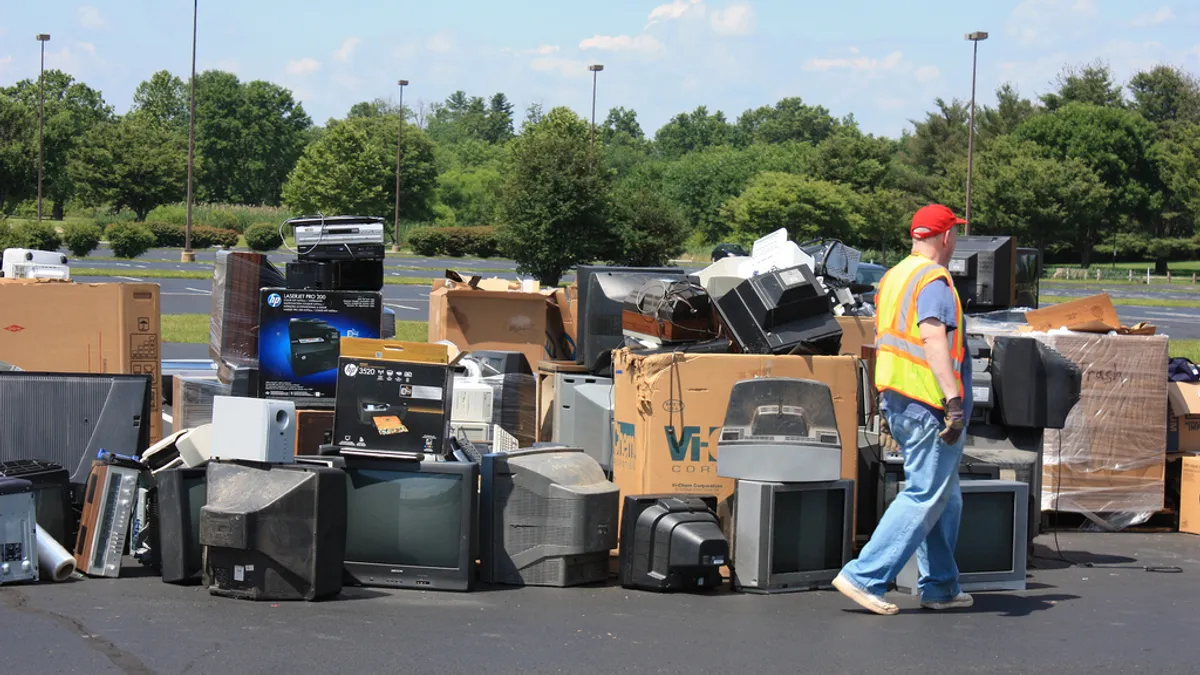Dive Brief:
- A newly released U.S. Environmental Protection Agency (EPA) study evaluating two third-party electronic recycling certification programs — e-Stewards and Responsible Recycling Standard for Electronics Recyclers (R2) — concludes both programs are improving "the responsible management of used electronics in the United States."
- e-Stewards and R2 were assessed for specific standards, including success in maximizing reuse and recycling, minimizing human and environmental exposure to toxins, ensuring downstream handlers are safely managing materials, and destroying all data on used electronics. Specific strengths identified in the implementation of these standards are clear and effective roles and responsibilities among program implementers and opportunities for constructive feedback throughout the system.
- Authors also recommended ways to boost program implementation effectiveness — namely additional training and materials on key topics, providing standards updates, and increasing audit times so the inspections are more complete.
Dive Insight:
As the "newest" electronic devices are rapidly becoming yesterday’s product, e-waste is stockpiling in astounding quantity. 41.8 million tons of it were discarded globally in 2014, worth $52 billion in reusable resources, though almost none was reused or recycled properly.
Domestically, the EPA has taken some strides to address the waste. The new study supports a commitment under the 2011 National Strategy for Electronics Stewardship (NSES), calling on the federal government to take on a leadership role in green design and responsibly managing used electronics. From this commitment stemmed the Sustainable Materials Management (SMM) Electronics Challenge to encourage equipment manufacturers and retailers to reduce carbon footprint, conserve resources, and become good stewards via third-party certified electronics recyclers.
In regards to the study, Mathy Stanislaus, assistant administrator for EPA’s Office of Land and Emergency Management, said, "We remain committed to continuing the dialogue started by this study to identify opportunities for continued improvement in management of used electronics."









